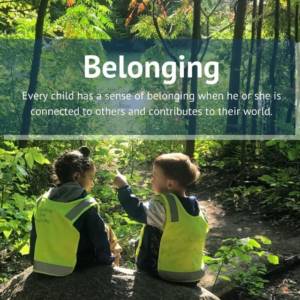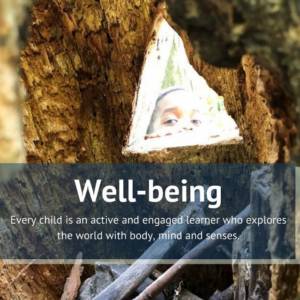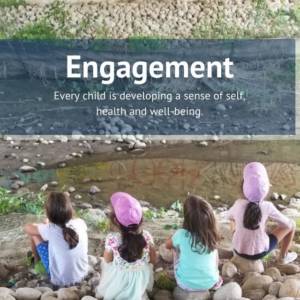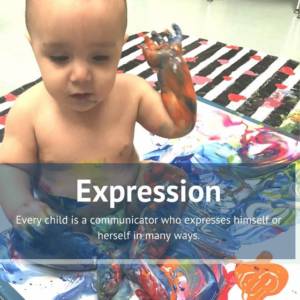How Does Learning Happen?
How Does Learning Happen?
The Foundation of Our Programs.
Our programs support the belief that children are competent, capable, curious and rich in potential. We follow How Does Learning Happen? – Ontario’s pedagogical approach to early learning that is bases on the Four Foundations of:
The Four Foundations are developed reflective of the cultures and values of the communities in which we are located. They are also at the centre of our Program Statement: the engine that supports our Agency vision, mission and philosophy. While the foundations never change; the approaches and methods in our Program Statement, are variable and adaptable. Read the full Program Statement, in our Parent Handbook.
Inquiry and Play Based
Where there is curiosity and wonder; there is the potential for learning. Our educators see themselves as co-learners; they evaluate methods and approaches to ensure that programs are inquiry driven & play based. Daily, observations and records of children’s thoughts and play patterns are made to best offer learning experiences that reflect children’s interests, needs and abilities.
Children share thoughts, ask questions and plan to create or expand learning experiences. Both indoor and outdoor learning environments include natural elements and use of real tools and equipment. Positive learning experiences contribute to healthy life skills and a passion for lifelong learning.
Since we challenge children to learn through inquiry; success is not measured by right or wrong but as a layering of learning outcomes that build upon themselves. Whether collaborating over an idea; solving a problem or guiding behaviour; YPCE supports children in a process of decision making and problem solving that involves: asking questions, reflection and discussion. Fostering positive and collaborative communication by welcoming and asking questions and supporting independent thought, helps guide children in making appropriate choices for themselves and the group.
The Value of the Outdoors
We believe that the “natural world” serves as a third teacher that offers valuable learning experiences necessary during early childhood. The outdoors serves as the primary learning environment and naturally offers open-ended materials; endless opportunities for imaginative play; and evokes a sense of wonder that contributes to the desire to explore and build on knowledge. We access various outdoor environments such as the fenced play space, the Beyond and the community.
With emphasis on nature and outdoor experiences; the positive power of learning in nature extends to all aspects of a child’s day. Outdoor experiences allow children to learn positive and respectful attitudes towards nature; to practise with developmentally appropriate risk and to expand on developing and established skills. Be sure to catch us at the end of the school year, as we promote the outdoors by “literally” immersing ourselves in the spirit of International Mud Day.
Relationships
YPCE understands the power of positive, early relationships between child, family, educators and the environment in developing the whole child. Collaborative relationships between families and educator teams are supported by respectful and open communication; engaging families and accepting their values. A child who is engaged, free to express themselves and has a sense of belonging; is a well and whole child who learns to act with confidence and good character.
Our foundational qualities of courtesy, respect, responsibility, confidence and positive self-esteem are in harmony with the Four Foundations. When children observe the respectful exchange of these traits during interactions with their families; they learn to create similar positive and meaningful relationships for themselves. When the Four Foundations are in balance; a child experiences physical and emotional health.
Engagement
The quality of our relationships is measured by the quality of our engagement; not only with our families but with community partners as well.
Relationships with community partners is equally important to support program development. Our awareness and engagement with resource educators and support therapies for children; program advisors and other partners, contributes to program stability and quality. Here’s what engagement looks like to us:
- We volunteer at local food banks.
- We undertake annual holiday drives supporting local shelters and causes.
- We support the annual walk-a-thon in support of Sick Kid’s Hospital.
- We participate in community seasonal and cultural events – such as holiday parades and theme days.
- We engage children with the senior community through intergenerational visits. Each of our preschool groups regularly visit the retirement home closest to their site, to engage in coordinated activities and events.
- We build relationships and family engagement by offering onsite events throughout the year. Our biggest day of the year is an Agency wide family engagement event held on Easter Monday, at our Adventure Camp site in Mount Albert.
Inclusivity
As part of our Agency philosophy, we believe that all children have the right to accessible, quality care and education; and that each child is valued as an individual. We uphold an emotional atmosphere that is inclusive, nurturing and safe. Family, cultural and developmental diversity is welcomed and celebrated in the program.
Child accommodations are expertly put in place to allow for a true sense of belonging. Resource educators are welcomed as part of our team and our educators train on support therapies for enrolled children in need. We are aware of community resources available to families and provide information as needed. YPCE welcomes open discussion surrounding accommodation, so that we may best achieve a care environment that is meaningful and purposeful, for all children.




